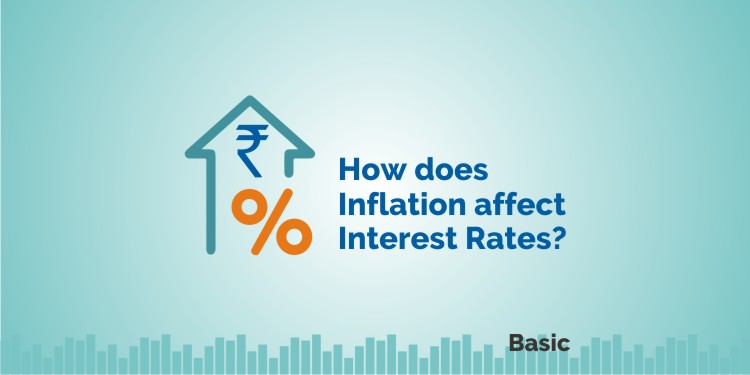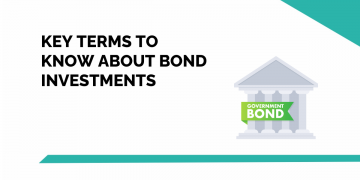Interest Rate is used to control Inflation by the central banks. Inflation is the continued increase in the general price levels of an economy. On the other hand; interest is the cost of borrowing funds. This article will make you understand the relationship between inflation and interest rates.
This blog discusses how the interest rate is used as an inflation control method. The use of interest rates to control inflation is different in different situations.
Let us discuss two main situations for Inflation and Interest rates:
| Table of Contents |
|---|
| Effect of High Inflation on Interest Rates |
| Effect of Low Inflation on Interest Rates |
| Example of Inflation and Interest Rate |
| Bottomline |
Effect of High Inflation on Interest Rates:
To control high inflation: the interest rate is increased.
When the interest rate rises, the cost of borrowing rises. This makes borrowing expensive. Hence borrowing will decline and as such the money supply (i.e the amount of money in circulation) will fall. A fall in the money supply will lead to people having lesser money to spend on goods and services. Hence, they will buy a lesser amount of goods and services.
This, in turn, will lead to a fall in the demand for goods and services. With the supply remaining constant and the demand for goods and services declining; the price of goods and services will fall.
As inflation is a continuous increase in the general price level of goods and services so a fall in the general price level of goods and services will lead to a decline in inflation levels.
Effect of Low Inflation on Interest Rates
In low inflationary situations; the interest rate is reduced. A fall in inflation and interest rates will make borrowing cheaper. Hence, borrowing will increase and the money supply will also increase. With a rise in the money supply, people will have more money to spend on goods and services.
Also Read: The Uninvited Guest – Inflation
So; the demand for goods and services will increase and with supply remaining constant this leads to a rise in the price level i.e inflation.
Example of Inflation and Interest Rates
On 2 August 2017: RBI reduced the Repo Rate from 6.25% to 6 %(i.e by 0.25%) due to low inflation. India’s consumer inflation declined to 1.54(five year low) for the period: April-September in 2017.
Repo rate is the rate at which commercial banks borrow from RBI. A decline in Repo rate will lead to a fall in the commercial bank’s cost of funding.
In India, all post-April 2016 flexible interest rate loans(including home loans) are tied to a bank’s MCLR. While the pre-April 2016 loans depend on a bank’s base rate. MCLR. MCLR stands for Marginal Cost of Funds based Lending Rate. This reduction in the cost of funding has to lead to many Indian banks reducing their MCLR.
For Example, Bank of India cut its one-year MCLR from 8.4% to 8.3%. IDBI Bank at the same time reduced their one-year MCLR to 8.55% from 8.65%.
Learn about Inflation and Interest Rates with Macroeconomics Made Easy course by Market Experts
This reduction in MCLR will lead to an increase in loan growth in both retail and corporate segment. This, in turn, will lead to an increase in the demand for goods and services as people will now have more money to spend.
This will have a positive impact on the economy. RBI expects that this move will lead to an increase in inflation and Interest rates will automatically get affected.
Bottom line:
A very high as well very low inflation can have an adverse impact on an economy. Thus it is necessary to maintain inflation and interest rates at a moderate level because Interest rate plays a vital role in maintaining inflation at a moderate level.









I couldn’t resist commenting
Very informative
Hi,
We are glad that you liked our post.
Thank you for Reading!